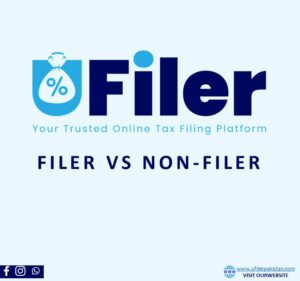
Introduction: In 2023, the Income Tax Ordinance (ITO) 2001 in Pakistan continues to play a pivotal role in shaping the taxation landscape. This blog post aims to shed light on the distinctions between non-filers and filers and their respective implications as per the ITO 2001.
Non-Filers: Non-filers, individuals who have not registered their income with the tax authorities, face certain restrictions and consequences. They are not eligible for certain tax benefits and exemptions, and their financial transactions may be subject to withholding taxes. Additionally, non-filers may encounter limitations when engaging in high-value financial transactions.
Key Points for Non-Filers:
- Limited Tax Benefits: Non-filers may miss out on various tax credits, deductions, and exemptions available to filers.
- Withholding Taxes: Financial transactions such as property transactions, bank transactions, and car purchases may attract higher withholding taxes for non-filers.
- Restricted Transactions: Non-filers may face restrictions in certain high-value transactions, emphasizing the importance of tax compliance.
Filers: On the other hand, individuals who comply with tax regulations and file their returns are categorized as filers. Being a filer brings several advantages, including access to tax benefits and a more straightforward process in financial dealings.
Key Points for Filers:
- Tax Benefits: Filers enjoy various tax benefits, including deductions, credits, and exemptions, promoting a more favorable tax environment.
- Smoother Transactions: Filing taxes regularly facilitates smoother and more straightforward financial transactions, as filers are often considered more financially transparent.
- Compliance with Regulations: Filing taxes is a legal requirement, and compliance ensures individuals contribute to the country’s revenue and economic development.
Conclusion: In conclusion, the differentiation between non-filers and filers in Pakistan under the ITO 2001 is significant. Understanding these distinctions is crucial for individuals to make informed decisions regarding their tax obligations and benefits. As tax regulations evolve, staying informed and compliant becomes increasingly essential for a robust financial future.
